Lasers in Space! Can Low Earth Orbit (LEO) Satellites Close the Digital Divide?
Internet Society – Contributing Partner
Session 496
Companies such as SpaceX, OneWeb, Amazon, and many more are seeking to launch large systems of LEO satellites to provide Internet access. Can these new LEO systems help connect the unconnected and create the sustainable, resilient communications infrastructure envisioned in SDG Goal 9? This workshop will explore both the challenges and opportunities with these systems and how they can help advance access to ICTs and the SDGs in general.
Agenda (all times CEST):
14:00 - Initial welcome, opening moderator script
14:05 - Introductions by panelists and what their interest is in LEOs
14:20 - Opportunities - what are examples of where LEO systems either have - or have potential - for helping the SDGs?
14:30 - Challenges - what are some of the barriers that my prevent these systems from helping the SDGs?
14:40 - Next steps - what can viewers do in their region to help?
14:50 - Brief time for any questions
14:55 - Final comments
14:58 - Closing moderator script
15:00 - Finish
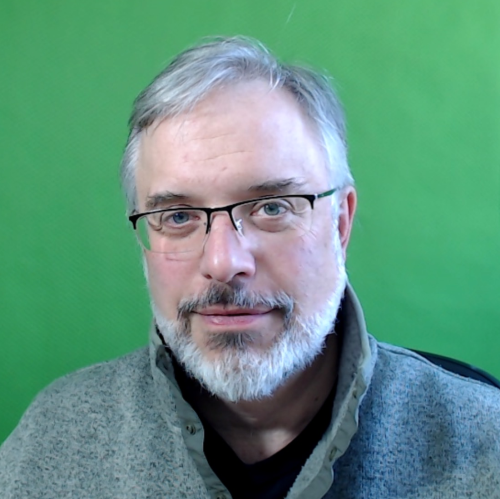
Dan York is the Director, Internet Technology, at the Internet Society and in 2022 led the organization's Low Earth Orbit (LEO) satellite project, seeking to understand the benefits and challenges of this new way to provide Internet access. With the Internet Society, Dan has also had roles involving DNS security, web security, TLS, IPv6, communications, IETF participation, and more. Prior to joining the Internet Society in 2011, Dan spent over 10 years working with Voice-over-IP (VoIP) security and was involved with Linux and open source technologies. Since the mid-1980's Dan has been working with online communication technologies and helping businesses and organizations understand how to use and participate in those new media. Dan frequently presents at conferences, has authored multiple books, participates in several podcasts, frequently edits Wikipedia, and writes extensively online. He lives with his family in northern Vermont, USA.
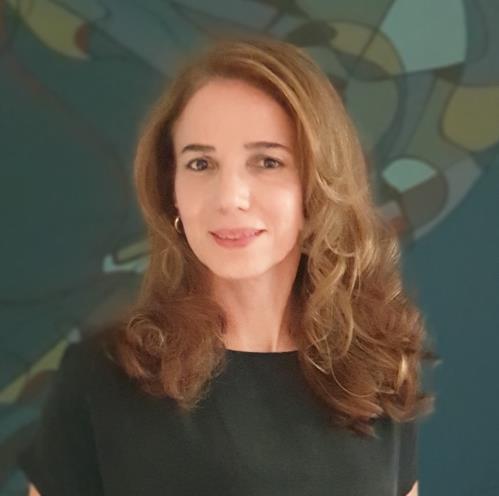
Berna Akcali Gur is a legal scholar specializing in information communications technology law, international law, and world trade law. Her most recent project relates to the Global Governance of Satellite Broadband, funded by the Internet Society Foundation. Currently, she is the convenor of the World Trade Law and Space Law modules at CCLS, Queen Mary University of London. Previously, she held research and lecturer posts at King's College London, the Institute of Advanced Legal Studies, and Kadir Has University Law School. Berna is the serving chair of the Membership Committee of the Global Academic Network for Internet Governance (GigaNet) and is on the experts' roster of the Council of Europe Data Protection Unit. She received her LL.B. degree from Ankara University Law School, her LL.M. degree from the University of Pennsylvania Law School in 2003, and her Ph.D. from King's College London in 2013. Before becoming an academic, she practiced law in Istanbul and New York.
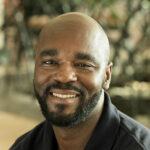
Verengai Mabika serves the Internet Society as Senior Policy Advisor for Africa. In this role he provides expert and policy advice to the several projects. He works very closely with the External and Community Engagement teams in improving and maintains our relations with regional partners such as African Union Commission, Africa Telecommunications Union, and National and Sub-regional Regulatory authorities among others.
Before joining the Internet Society, Verengai was a part of Internet Society’s extended family for several years, leading the creation of the Internet Society's chapter in Zimbabwe and joining the Internet Society's delegation to the ITU’s WTSA as a chapter fellow. Over the years he worked as a “serial entrepreneur,” having launched several award-winning initiatives that leverage the Internet to reach key social goals, including climate change and blockchain.
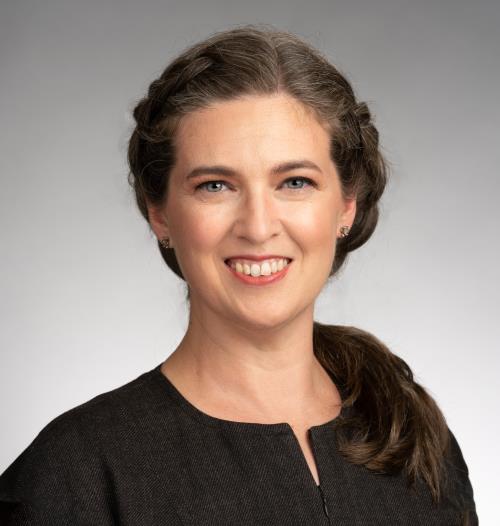
Rose Croshier is a non-resident fellow at the Center for Global Development and an international relations specialist within the Office of Space Commerce (OSC), US Department of Commerce, in Washington, DC. In her work with CGD, Rose focuses on enabling low- and middle-income countries’ adoption of space-based technology. Before joining CGD and the OSC, Croshier was an accomplished program and operations manager with the US Air Force, specializing in areas such as Space Operations, Security Cooperation and Development, Peacekeeping, Disaster Management and Military Intelligence.
Croshier has held various positions in the intersection between security, diplomacy, and development, serving as a staff officer in the US Task Force in Djibouti, as a “blue helmet” in the UN mission to the Democratic Republic of Congo (MONUSCO), as the Chief of US Security Cooperation for Ghana, Togo and Benin, and as the US Liaison to the Kofi Annan International Peacekeeping Training Centre in Ghana. Highlights include working with ECOWAS and West African countries to counter Ebola, armed groups, and maritime insecurity in the Gulf of Guinea. Concerning space and technology innovation, Croshier held leadership positions at the National Air and Space Intelligence Center and Air Force Materiel Command, where she contributed to the development of new US systems and capabilities. Lastly, Croshier greatly values her early-career, hands-on experience as a space operator at the U.S. Combined Space Operations Center in California, tracking the ever-growing global constellation of man-made satellites and space debris.
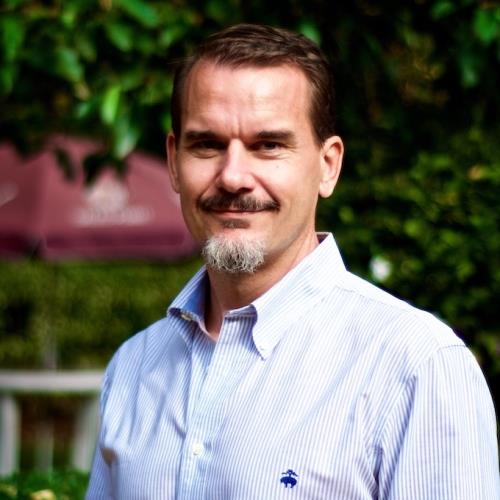
Mike Puchol is a seasoned technologist and entrepreneur with a diverse background in aeronautical and mechanical engineering, software and hardware development, wireless communications, and security. As the CTO of Poa! Internet, Mike plays a key role in Kenya's largest low-cost ISP, serving underprivileged communities with affordable broadband access. Poa's innovative approach to technology, including the integration of fiber, wireless, and free-space optics, led it to win the prestigious Africa50 Innovation Challenge in 2020.
With a passion for problem-solving and a self-taught approach to learning, Mike's expertise spans multiple industries, and he is known for his hands-on development experience, commercial acumen, and unique insight into business processes. Recently, he began learning about LEO constellations, with a focus on SpaceX’s Starlink, to the point of launching a website which very accurately simulates the system, using real orbital data from active satellites.
Outside of his professional pursuits, Mike was a volunteer firefighter for 23 years, and is now actively involved in social impact and animal rescue programs.
-
 C2. Information and communication infrastructure
C2. Information and communication infrastructure
-
 C3. Access to information and knowledge
C3. Access to information and knowledge
-
 C4. Capacity building
C4. Capacity building
-
 Goal 3: Ensure healthy lives and promote well-being for all
Goal 3: Ensure healthy lives and promote well-being for all
-
 Goal 4: Ensure inclusive and equitable quality education and promote lifelong learning opportunities for all
Goal 4: Ensure inclusive and equitable quality education and promote lifelong learning opportunities for all
-
 Goal 5: Achieve gender equality and empower all women and girls
Goal 5: Achieve gender equality and empower all women and girls
-
 Goal 8: Promote inclusive and sustainable economic growth, employment and decent work for all
Goal 8: Promote inclusive and sustainable economic growth, employment and decent work for all
-
 Goal 9: Build resilient infrastructure, promote sustainable industrialization and foster innovation
Goal 9: Build resilient infrastructure, promote sustainable industrialization and foster innovation
-
 Goal 10: Reduce inequality within and among countries
Goal 10: Reduce inequality within and among countries
-
 Goal 11: Make cities inclusive, safe, resilient and sustainable
Goal 11: Make cities inclusive, safe, resilient and sustainable
-
 Goal 13: Take urgent action to combat climate change and its impacts
Goal 13: Take urgent action to combat climate change and its impacts
-
 Goal 16: Promote just, peaceful and inclusive societies
Goal 16: Promote just, peaceful and inclusive societies
-
 Goal 17: Revitalize the global partnership for sustainable development
Goal 17: Revitalize the global partnership for sustainable development
This session directly ties into SDG 9.c "Significantly increase access to information and communications technology and strive to provide universal and affordable access to the Internet in least developed countries by 2020". The use of low Earth orbit (LEO) satellites offers tremendous potential to bring Internet access to more people around the world.
Additionally, access to high speed, low-latency Internet connectivity enables other SDGs, including SDG 4 (Quality Education), SDG 8 (Decent Work and Economic Growth), SDG 10 (Reduced Inequalities), SDG 11 (Sustainable Cities and Communities). Broader access to the Internet also can contribute to healthier lives (SDG 3), gender equality (SDG 5), affordable and clean energy (SDG 7), climate action (SDG 13), peace and justice (SDG 14), and global partnerships (SDG 17).